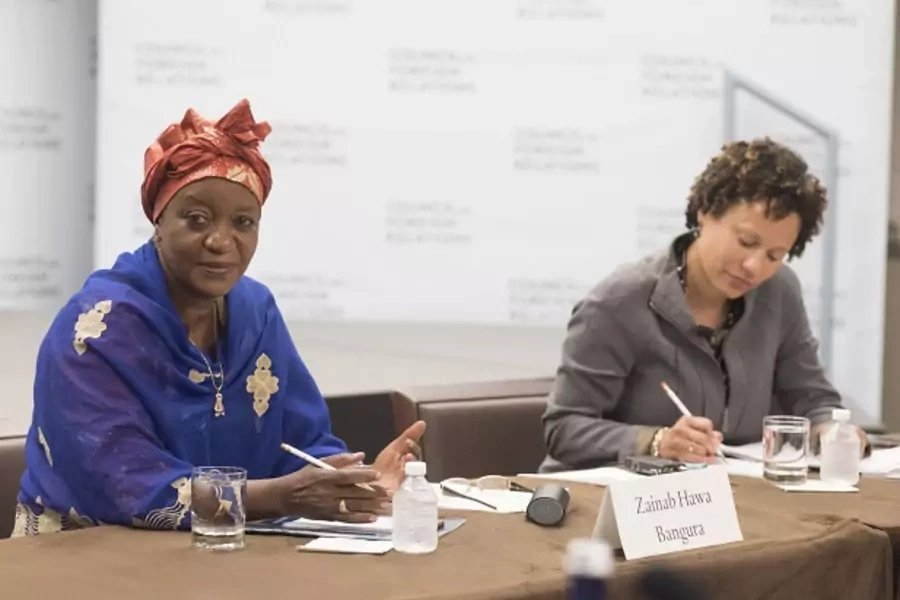UN Under-Secretary-General Bangura Addresses Rape in War

More on:
I hosted United Nations (UN) Under-Secretary-General Zainab Hawa Bangura, the special representative of the secretary-general on sexual violence in conflict, at CFR last week to discuss her work combating the use of sexual violence, not only as a weapon of war, but also as a tactic of terror. Rape in combat has now been well-established as a weapon of war. Earlier this year, for example, the International Criminal Court (ICC) convicted Jean-Pierre Bemba of war crimes and crimes against humanity for the mass rapes committed under his command, marking the first time that the ICC convicted a defendant of rape as a war crime or crime against humanity.
The next challenge will be establishing rape (and other forms of sexual violence) as a tactic of terror used by extremism groups like Boko Haram and the self-proclaimed Islamic State. As I have written before, extremist groups use sexual violence as part of their political economy. While not a new phenomenon, with growing attention to terrorism since the September 11 attacks, increasing reports are emerging of terrorist groups using rape, sexual slavery, forced pregnancy and other forms of sexual violence to consolidate power, spread fear, foster their ideology, generate revenue, create a new generation of fighters, and destroy existing community structures.
During our conversation, Bangura described her mandate, which was established by UN Security Council Resolution 1888, and discussed the variety of tools she uses to address sexual violence in conflict, in coordination with survivors, military and civilian leaders, and nontraditional allies, including religious leaders and men. She noted that her job is like peeling an onion, because with each layer of the onion that is revealed through her work, there are various levels of pain and tears.
In addition to establishing sexual violence as a tactic of terror, Bangura’s work is aimed at ending rape in war by strengthening prevention, protection, and punishment. Beyond these “3Ps,” she acknowledged that the fight against rape in war must focus on a fourth P—namely peace. During our discussion Bangura noted that “We cannot stop sexual violence unless we stop the wars,” and emphasized that countries and international institutions need to do a better job of promoting peace.
Bangura also pointed out that preventing war should include preventing the spread of conflicts to neighboring countries. She gave the example of the civil war in Liberia in the 1980s that spread to the surrounding countries, including her home country of Sierra Leone and then Cote d’Ivoire. Illustrating this point, she warned, “[W]hen you see your neighbor’s house on fire, you don’t have to wait because at the end of the day your house will be next.” International institutions, including the UN, should focus on preventing internal conflicts before they spread to neighboring countries. Promoting peace would not only help prevent sexual violence as a weapon of war, but also create circumstances for greater prosperity and well-being.
More on:
 Online Store
Online Store